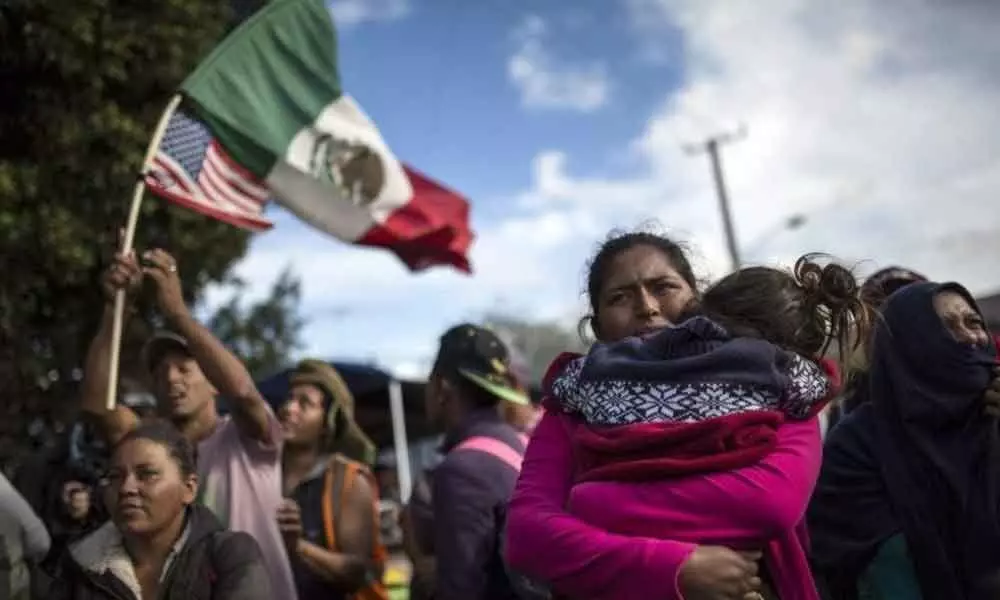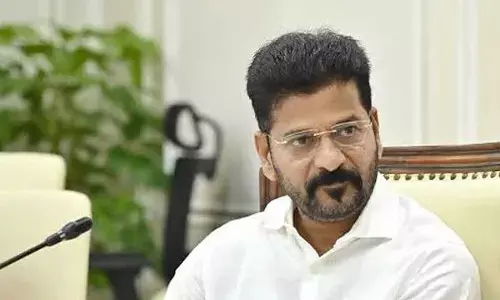US held a record number of migrant kids in custody in 2019

The 3-year-old girl travelled for weeks cradled in her father's arms, as he set out to seek asylum in the United States. Now she won't even look at him.
Comayagua: The 3-year-old girl travelled for weeks cradled in her father's arms, as he set out to seek asylum in the United States. Now she won't even look at him.
After being forcibly separated at the border by government officials, sexually abused in US foster care and deported, the once bright and beaming girl arrived back in Honduras withdrawn, anxious and angry, convinced her father abandoned her. He fears their bond is forever broken. "I think about this trauma staying with her too, because the trauma has remained with me and still hasn't faded," he said, days after their reunion.
This month new government data shows the little girl is one of an unprecedented 69,550 migrant children held in US government custody over the past year, enough infants, toddlers, kids and teens to overflow the typical NFL stadium.
That's more kids detained away from their parents than any other country, according to United Nations researchers. And it's happening even though the US government has acknowledged that being held in detention can be traumatic for children, putting them at risk of long-term physical and emotional damage. Some of these migrant children who were in government custody this year have already been deported. Some have reunited with family in the US, where they're trying to go to school and piece back together with their lives.
About 4,000 are still in government custody, some in large, impersonal shelters. And more arrive every week. The nearly 70,000 migrant children who were held in government custody this year — up 42 percent in fiscal year 2019 from 2018 — spent more time in shelters and away from their families than in prior years. The Trump administration's series of strict immigration policies has increased the time children spend in detention, despite the government's own acknowledgment that it does them harm. In 2013, Australia detained 2,000 children during a surge of maritime arrivals. In Canada, immigrant children are separated from their parents only as a last resort; 155 were detained in 2018. In the United Kingdom, 42 migrant children were put in shelters in 2017, according to officials in those countries.
"Early experiences are literally built into our brains and bodies," says Dr. Jack Shonkoff, who directs Harvard University's Center on the Developing Child. Earlier this year, he told Congress that "decades of peer-reviewed research" shows that detaining kids away from parents or primary caregivers is bad for their health. It's a brain-wiring issue, he said.
"Stable and responsive relationships promote healthy brain architecture," Shonkoff said. "If these relationships are disrupted, young children are hit by the double whammy of a brain that is deprived of the positive stimulation it needs, and assaulted by a stress response that disrupts its developing circuitry." Younger children are at greater risk, because their biological systems are less developed, he said. Previous harm, and the duration of separation, are also more likely to lead to trauma.
One Honduran teen who was held in a large detention center for four months before reuniting with his mother said that, as each day passed, his fear and anxiety grew. "There was something there that made us feel desperate. It was freedom. We wanted to be free," he recalled. "There was despair everywhere." Another Honduran teen, who arrived in the US at 16 and was detained in a series of increasingly secure shelters for more than a year, said he saw his peers harm themselves.
"They would cry sometimes, alone, or they would hit themselves against the wall," he said. "I thought that was because of them being here for such a long time." The teens spoke on condition of anonymity out of concerns for their safety. The 3-year-old Honduran girl was taken from her father when immigration officials caught them near the border in Texas in March 2019 and sent her to government-funded foster care. The father had no idea where his daughter was for three panicked weeks.
It was another month before a caregiver put her on the phone but the girl, who turned four in government custody, refused to speak, screaming in anger. "She said that I had left her alone and she was crying," said her father during an interview with the AP and Frontline at their home in Honduras. "'I don't love you Daddy, you left me alone,'" she told him. The father agreed to speak about their case on condition of anonymity for safety reasons. What the little girl didn't, or couldn't, tell her dad was that another child in her foster home woke her up and began molesting her, according to court records.
As the days passed, she began urinating on herself and seemed unable to eat or drink, a foster parent said in the records. "She's so small for something like that to happen," said her father, who found out about his daughter's abuse while he was in detention. "I felt like I couldn't do anything to help her." Desperate to see his daughter, he begged for a DNA test which, four months into his detention, proved their relationship. Still the government kept them apart.








